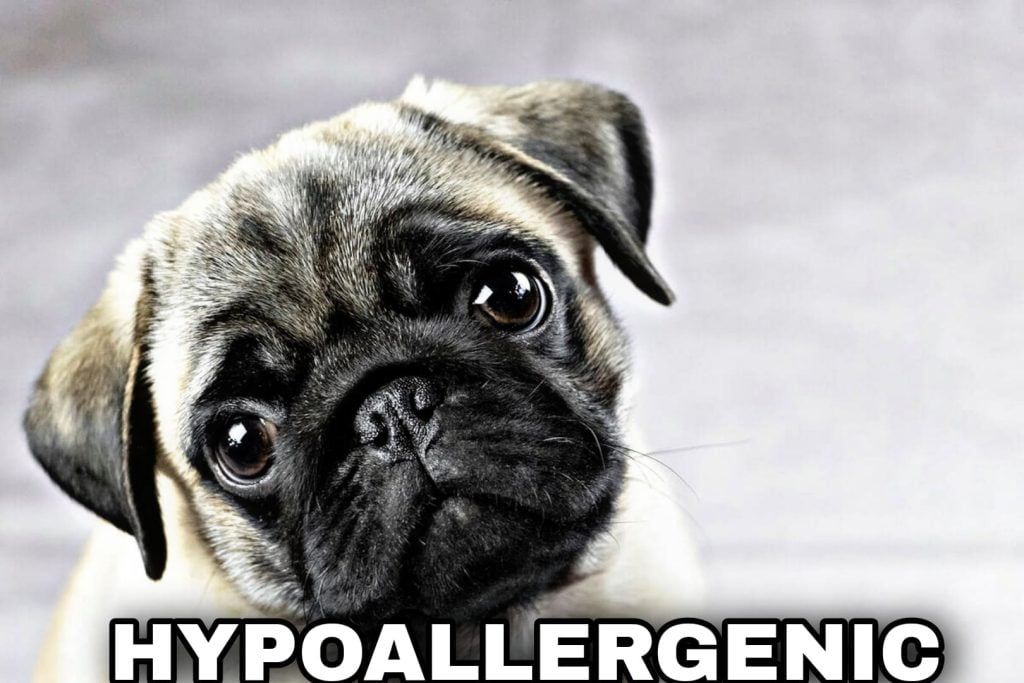Discover if pugs are hypoallergenic, and learn how to manage allergies while living with these adorable companions. Get expert insights now.

Are you considering bringing a pug into your home but worried about allergies? Understanding the relationship between pugs and allergies is crucial for making an informed decision. Let’s delve into this topic to uncover the truth about whether pugs are hypoallergenic.
What Causes Dog Allergies?
Before we delve into whether pugs are hypoallergenic, let’s first understand what causes allergies in dogs. Dog allergies are typically triggered by proteins found in a dog’s dander, saliva, and urine. These proteins can provoke allergic reactions in sensitive individuals, leading to symptoms such as sneezing, itching, watery eyes, and congestion.
Why Aren’t Pugs Hypoallergenic?
Contrary to popular belief, pugs are not hypoallergenic. Like all dogs, they produce dander and saliva, which contain allergens that can trigger reactions in susceptible individuals. Additionally, pugs have a dense double coat that sheds moderately year-round, contributing to the presence of allergens in the home environment.
What Can You Do If You Have Allergies and Have a Pug?
If you’re allergic to dogs but still want to share your home with a pug, there are several steps you can take to minimize allergic reactions:
- Regular grooming: Brush your pug frequently to remove loose hair and dander. Bathing your pug with a hypoallergenic shampoo can also help reduce allergen levels on their coat.
- Clean home environment: Vacuum your home regularly using a vacuum cleaner equipped with a HEPA filter to trap allergens effectively. Washing your pug’s bedding and cleaning their living areas can also help reduce allergen exposure.
- Air purification: Consider using an air purifier with a HEPA filter to remove airborne allergens from your home.
Small Dog Breeds for Allergy Sufferers
If you’re concerned about allergies but still desire a canine companion, consider exploring small dog breeds that are more suitable for allergy sufferers. While no dog breed is entirely hypoallergenic, some breeds produce fewer allergens or shed less than others.
Hypoallergenic Alternatives:
While pugs may not be hypoallergenic, there are some dog breeds that are considered more suitable for allergy sufferers due to their minimal shedding and lower production of allergens. Some hypoallergenic dog breeds include:
- Poodle: Known for their hypoallergenic coat and minimal shedding, poodles are a popular choice for allergy sufferers.
- Bichon Frise: These fluffy, affectionate dogs have a hypoallergenic coat that produces less dander.
- Maltese: With their silky white coats, Maltese dogs are hypoallergenic and produce minimal shedding.
- Portuguese Water Dog: Renowned for their non-shedding, waterproof coats, Portuguese Water Dogs are an excellent choice for allergy sufferers.
- Schnauzer: Miniature Schnauzers have a wiry coat that sheds minimally and produces fewer allergens.
Conclusion:
While pugs may not be hypoallergenic, they are cherished for their charming personalities and affectionate nature. With proper care and maintenance, allergy sufferers can still enjoy the companionship of a pug while minimizing allergic reactions. Remember to consult with your healthcare provider and do thorough research before bringing any dog into your home, especially if you have allergies.
In summary, while pugs may not be hypoallergenic, they can still make wonderful pets for the right owners. By understanding the factors that contribute to allergies and implementing practical solutions, you can create a harmonious environment for both you and your pug.
Hypoallergenic Dog Breed Criteria:
When considering hypoallergenic dog breeds, it’s essential to understand the criteria that contribute to their suitability for allergy sufferers. Some factors to consider include:
- Coat type: Dogs with hair rather than fur, such as poodles and Bichon Frises, tend to produce fewer allergens.
- Shedding: Breeds that shed minimally or have a single coat, such as Portuguese Water Dogs and Maltese, are less likely to trigger allergic reactions.
- Dander production: Dander, the tiny flecks of skin shed by dogs, contains allergens that can provoke reactions in sensitive individuals. Hypoallergenic breeds produce less dander, reducing the risk of allergic reactions.
- Saliva production: Dogs that produce less saliva or have less enzyme activity in their saliva may be less likely to trigger allergies.
By considering these criteria, you can narrow down your search for a hypoallergenic dog breed that suits your lifestyle and preferences.
FAQS
- Are Pugs good for allergy sufferers?
- No, Pugs are not ideal for allergy sufferers. They produce dander and saliva, which can trigger allergic reactions in sensitive individuals.
- What dogs are worst for allergies?
- Breeds known for heavy shedding and producing more dander and saliva, such as Labrador Retrievers, German Shepherds, and Saint Bernards, are generally worse for allergies.
- Are Pugs high maintenance?
- Yes, Pugs require regular grooming to manage shedding and maintain their health. Additionally, they may need special attention to prevent health issues associated with their flat faces, such as respiratory problems.
- Which dog is more hypoallergenic?
- Dog breeds with minimal shedding and less dander production, such as Poodles, Bichon Frises, and Portuguese Water Dogs, are considered more hypoallergenic compared to breeds like Pugs.